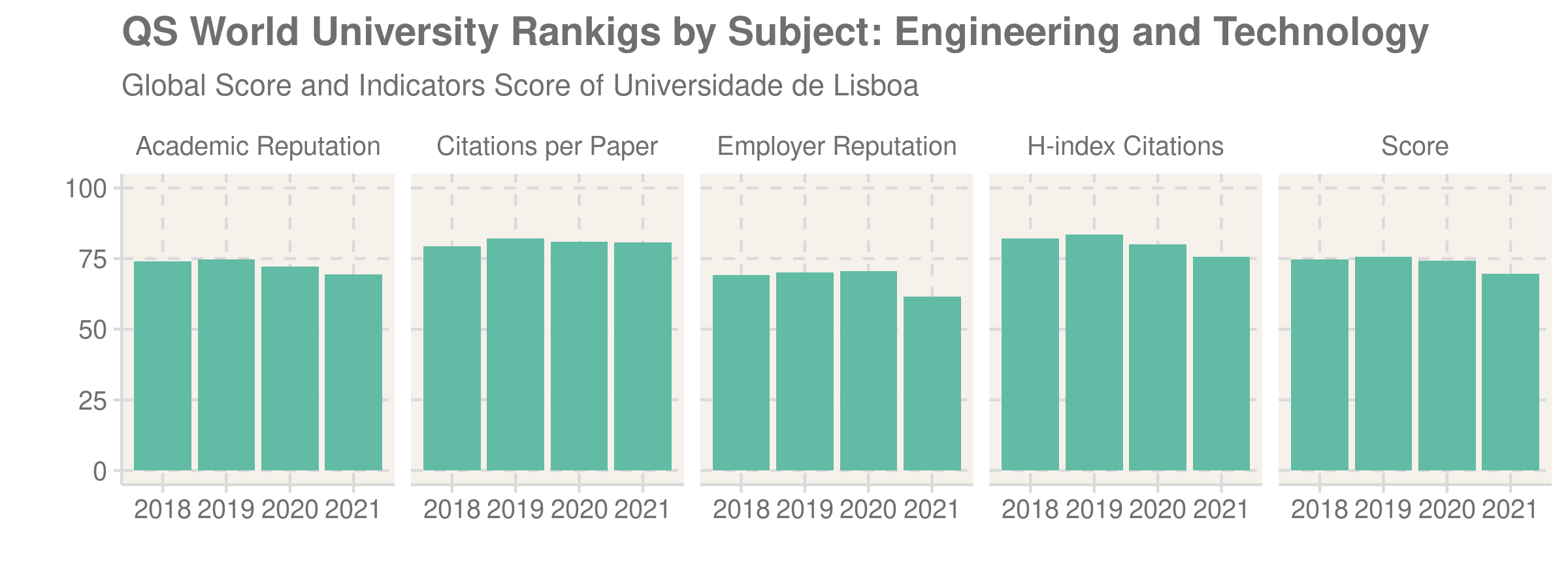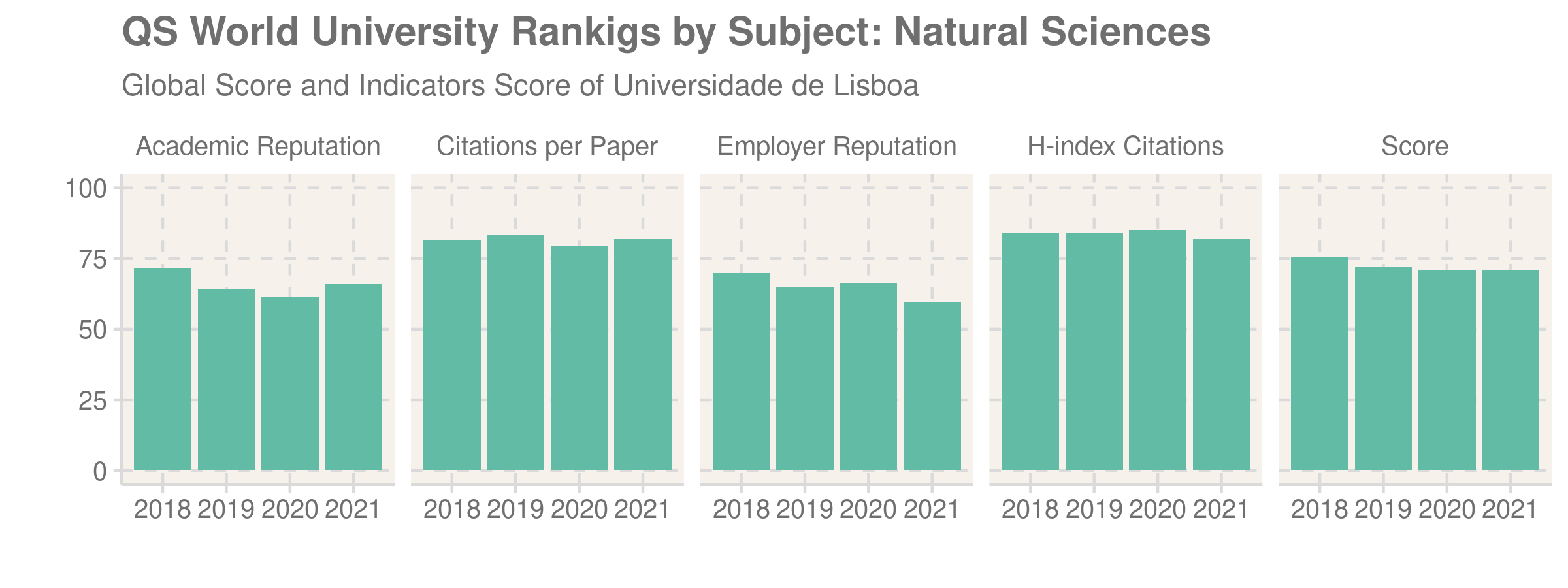The QS World University Rankings is developed by UK-based Quacquarelli Symonds (QS), considering approximately 3000 institutions and ranking 800, where the first 400 are indexed individually, and followed by groups of institutions. Together with the World University Ranking and QS, university city rankings, rankings by field and regional rankings are also developed. QS sources include a faculty and researcher survey (63 thousand), an employer survey (28 thousand) and SCOPUS bibliometric database.
QS World University Ranking by Subject
Engineering and Technology
Includes: Computer Science and Information Systems; Engineering – Chemical; Engineering – Civil and Structural; Engineering – Electrical and Electronic; Engineering – Mechanical; Engineering – Mineral & Mining e Engineering – Petroleum.
Table 1: ULisboa ranks

Figure 2: Global scores and Indicator scores in Engineering and Technology

Table 2: Global scores and Indicator scores in Engineering Technology

Natural Sciences
Includes: Chemistry; Earth and Marine Sciences; Environmental Sciences; Geography; Geology; Geophysics; Materials Sciences; Mathematics ePhysics & Astronomy.
Table 3: ULisboa ranks

Figure 3: Global scores and Indicator scores in Natural Sciences

Table 4: Global scores and Indicator scores in Natural Sciences

